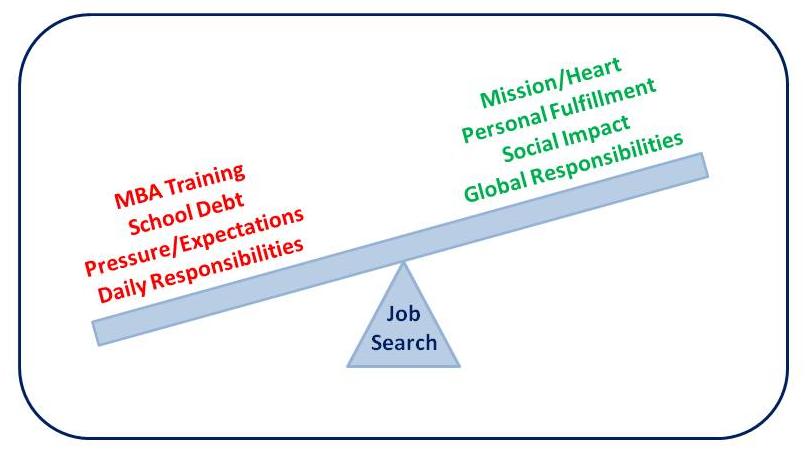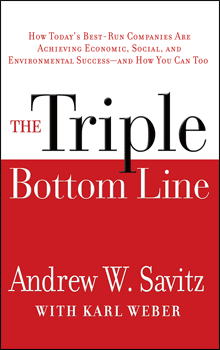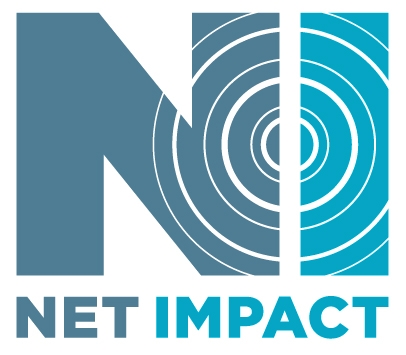Want a CSR Job? Read This First.
/ With just over two months left until I graduate from business school, I’ve started to reflect on what I’ve accomplished over the last two years.
Without a doubt, the most fulfilling experiences of my MBA program have been the chances I’ve had to engage in real-world consulting projects for corporate and nonprofit clients.
With just over two months left until I graduate from business school, I’ve started to reflect on what I’ve accomplished over the last two years.
Without a doubt, the most fulfilling experiences of my MBA program have been the chances I’ve had to engage in real-world consulting projects for corporate and nonprofit clients.
In the last four semesters, I’ve worked on some pretty terrific marketing and corporate social responsibility projects - including brand audits, marketing research plans, stakeholder communications strategies, and social media tactics.
But perhaps my most satisfying consulting project was a sustainability reporting and stakeholder engagement plan for Praxair, a $9B Fortune 300 industrial gas manufacturer in Danbury, CT. I’ve talked about this project in past posts, and I was thrilled to see that Boston University recently issued a press release about this engagement (including a quote from yours truly!).
These consulting projects have been the most rewarding part of my MBA, but they’ve also been the most challenging and time-consuming. In the end, though, I’ve signed up for all of them without hesitation – in large part because I (and many of my fellow MBA classmates) believed they’d serve as proof of our experience to potential employers come recruiting season.
Interestingly, last week The Wall Street Journal published an article about companies partnering with business schools to create these sorts of CSR projects for students. The article starts out positively, saying urgent “social concerns” are leading more and more companies to partner with business schools to provide real-world education and training to students (aka: potential employees).
Unfortunately the story takes on a different tone just a few sentences later:
The effort [to create real-world CSR consulting projects] is being met with both gratitude and skepticism from business schools, which say that despite the emphasis on integrating these hot-button topics into the curriculum, it's business as usual at recruiting time. Few hiring managers, they say, ask students about corporate-responsibility training or indicate it's a priority.
That’s right – according to the article, these CSR projects may be happening more frequently on business school campuses, but that doesn’t mean they’re turning into more CSR jobs for MBA graduates after school.
The article drills home the point even further, saying that engaging students in these kinds of projects “doesn't translate into hiring socially responsible M.B.As, an issue that “points to a disconnect on part of the companies: There's enthusiasm in the classroom for imparting corporate responsibility and sustainability concepts, but hiring managers attending campus recruiting sessions say it's rarely something they quiz candidates about.”
In the end it seems that MBA grads looking for CSR jobs can easily find themselves between that proverbial rock and a hard place – on the one hand, they’re receiving extraordinary real-world training for future sustainability positions; yet on the other, there’s often no opportunity to continue this work once they finish business school.
Another related and interesting study that just came out also reinforced this point:
Ellen Weinreb from WeinrebGroup analyzed six years of CSR job postings and drew conclusions about the availability of jobs and overall trends in CSR recruiting. Her findings point to an interesting conclusion for recent MBA grads wanting to get into CSR (which, by the way, is the same conclusion drawn by the Wall Street Journal article):
If you want to work in CSR, get functional experience first.
Ellen’s study shows an increase over time in VP and Director-level CSR jobs – which is great news for people already working in CSR but not so great for MBA grads just trying to jump in.
Since those high-level CSR jobs are most likely out of reach for newly-minted MBAs, Ellen suggests job seekers embed themselves in a corporate function (marketing, finance, strategy etc), learn the business, and then transition internally to a CSR role.
When you think about it, this advice makes sense; after all, to be effective in sustainability, you’ve got to first understand the business you’re in.
For my part, it turns out that I’ve actually heard this advice many, many times – and given the frequency with which it’s said, I’ve taken it seriously to heart.
Still, this puts me – and many other soon-to-be MBA grads – in a bit of an awkward position going forward.
My goal is to work in a CSR role within a big consumer brand, so I’ve stacked my resume with CSR-related projects and classes to show future employers that I know what I’m talking about.
But if in the end it turns out that these kinds of activities don’t necessarily translate into a job-seeker’s “competitive advantage,” did I waste my time on these projects when I should have been doing something else? Obviously that’s being overly dramatic, but the issue certainly gives me pause.
In the end, the best advice I can give to CSR job-seekers is sort of a hybrid model:
Learn the business through functional experience, but bring sustainability to work every day.
Yes, getting that marketing, or finance, or supply chain experience under your belt will be crucially important – not only to build credibility and a reputation for yourself, but also as a way to help you think about sustainability and CSR opportunities from within.
But just because you’re working in a non-CSR function doesn’t mean that you should chuck your CSR know-how and skills out the window. On the contrary, your understanding and flexibility in CSR can only help you do your functional job better.
We can still hope that one day CSR will be such a corporate priority that all companies will recruit for these positions. In the meantime, my advice is to earn your stripes at a company you respect and admire, make your interest and intentions in sustainability clear, and with time transition into the CSR job you want.
As the old saying goes, “Your patience will be rewarded”.




 As I mentioned in an
As I mentioned in an 
 Perhaps one of the best parts of being a second year MBA student is getting to pick my schedule. Unlike first year, where all of the core business classes were chosen for me, as a second year student I get to decide which electives I want to take.
Not only has this been a relief (since most of the core classes were quantitative, and I am by no means a math whiz), it’s also been fun and rewarding to study topics that interest me through an MBA lens.
Perhaps one of the best parts of being a second year MBA student is getting to pick my schedule. Unlike first year, where all of the core business classes were chosen for me, as a second year student I get to decide which electives I want to take.
Not only has this been a relief (since most of the core classes were quantitative, and I am by no means a math whiz), it’s also been fun and rewarding to study topics that interest me through an MBA lens.



